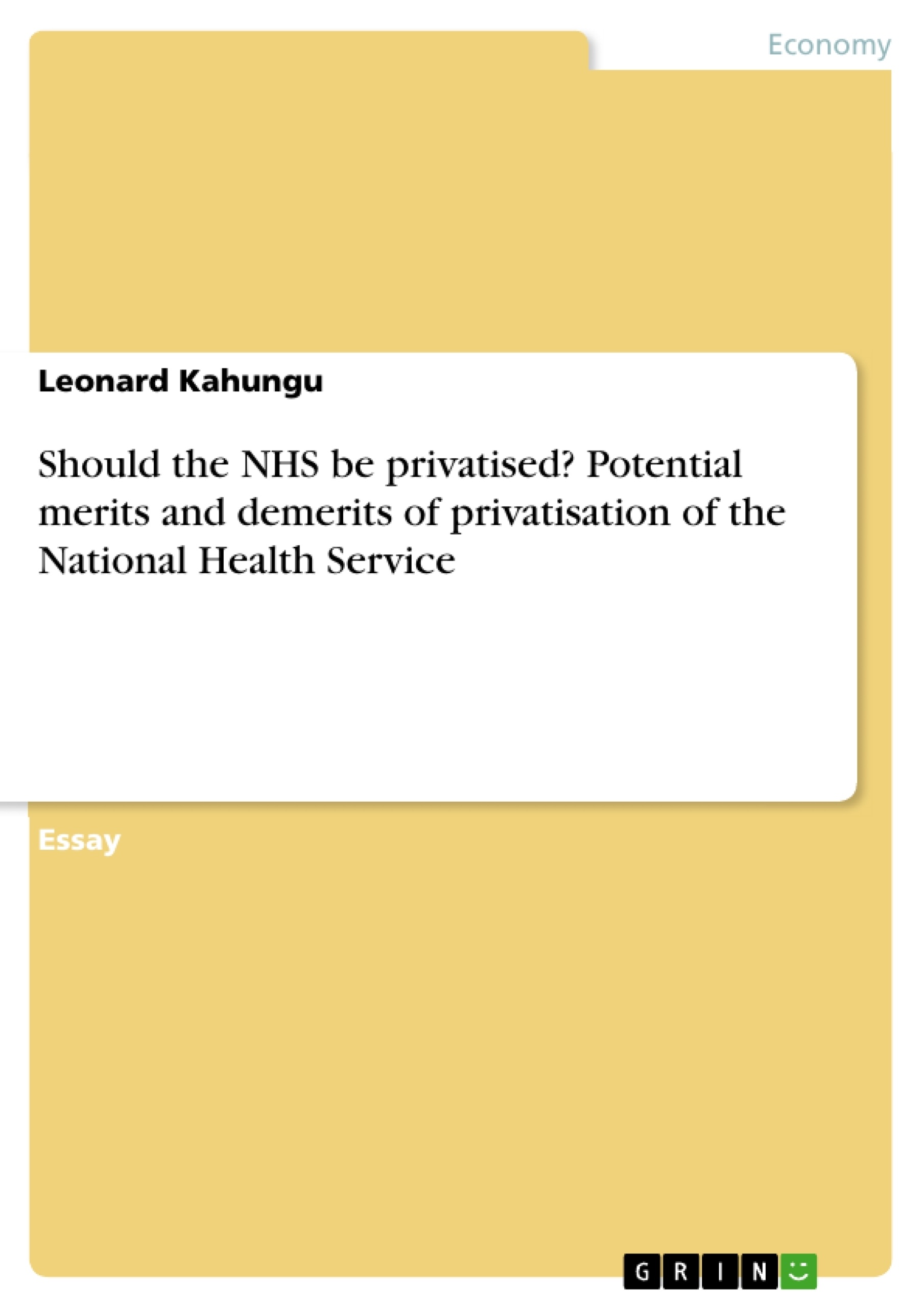In 1948, the post-war Labour government in the United Kingdom (UK) initiated the National Health Service (NHS). The NHS initiative brought together the hospitals, nurses, dentists, clinicians and pharmacists under one organisation to deliver free public medical services at various points of delivery.
Since then, the provision of medical care has been entirely free and primarily funded from taxation, as an act of faith by the British administration. Since then also, the NHS has become one of the central issues defining UK politics, where some argue that healthcare would be safer and more efficient if managed by the government as opposed to privatisation provisions.
As a consequence, the contemporary NHS has become a different system, where both the public and the private sector provide healthcare.
Typically, privatisation is used to describe the process or the act of transferring an industry from the public division, often overseen by the government, to the private segment. Thus, the aim of this paper is to critically evaluate the statement "The NHS Should Be Privatised," using an argumentative approach and taking into account economic as well as social factors.
Table of Contents
- Introduction
- Potential Merits of NHS Privatisation
- Economic Factors
- Social Factors
- Impending Demerits of NHS Privatisation
- Economic Aspects
- Social Aspects
- Conclusion
Objectives and Key Themes
This paper critically evaluates the argument for privatizing the National Health Service (NHS) in the UK. It explores the potential benefits and drawbacks of such a move, considering both economic and social factors.
- Economic efficiency of privatization vs. public management of the NHS
- The impact of political influence on NHS resource allocation
- Potential for monopolies and exploitation under privatization
- The role of the NHS in representing public interest versus private profit motives
- Balancing the need for efficient healthcare services with the social responsibility of care provision.
Chapter Summaries
Introduction: This introductory chapter establishes the context of the debate surrounding NHS privatization. It provides background on the NHS's inception in 1948 and its evolution into a system with both public and private sector involvement. The chapter sets the stage for a critical evaluation of the statement "The NHS Should Be Privatised," outlining the paper's argumentative approach.
Potential Merits of NHS Privatisation: This section explores the potential economic and social advantages of privatizing the NHS. Economically, the argument centers on increased efficiency driven by profit motives. Private sector organizations, it is argued, are more likely to implement cost-cutting measures and strategic planning to maximize returns, leading to improved resource management and potentially better service delivery. Socially, privatization is presented as a means to reduce political interference and prioritize economic principles in decision-making, thus potentially leading to better allocation of resources and more effective management free from populist influences.
Impending Demerits of NHS Privatisation: This section examines the potential negative economic and social consequences of privatizing the NHS. Economically, the main concern is the risk of creating a healthcare monopoly, leading to potentially higher prices and exploitation of the public due to reduced competition. Socially, the transfer to the private sector raises concerns about the diminished accountability of healthcare providers to the public. Private companies prioritize profit maximization for stakeholders, potentially neglecting the public interest and essential services that may not be profitable. The chapter contrasts this with the public sector's inherent obligation to provide essential services regardless of profitability.
Keywords
NHS privatization, economic efficiency, social welfare, healthcare management, public sector, private sector, monopoly, political influence, profit maximization, public interest, resource allocation, cost-cutting, accountability.
FAQ: A Critical Evaluation of NHS Privatization
What is the purpose of this document?
This document provides a comprehensive preview of a paper critically evaluating the argument for privatizing the National Health Service (NHS) in the UK. It includes a table of contents, objectives and key themes, chapter summaries, and keywords.
What topics are covered in the document?
The document explores the potential merits and demerits of NHS privatization, considering both economic and social factors. Key themes include the economic efficiency of privatization versus public management, the impact of political influence on resource allocation, the potential for monopolies, the conflict between public interest and private profit, and the balance between efficient healthcare and social responsibility.
What are the potential merits of NHS privatization, according to the document?
The document suggests that privatization could lead to increased economic efficiency through cost-cutting measures and strategic planning driven by profit motives. It also proposes that privatization might reduce political interference and prioritize economic principles in decision-making, leading to better resource allocation.
What are the potential demerits of NHS privatization, according to the document?
The document highlights the risk of creating healthcare monopolies, potentially leading to higher prices and exploitation of the public due to reduced competition. It also expresses concern about diminished accountability to the public, as private companies prioritize profit over public interest and essential services that may not be profitable.
What is the structure of the main paper previewed in this document?
The main paper includes an introduction, a section on the potential merits of NHS privatization (including economic and social factors), a section on the impending demerits of NHS privatization (also including economic and social aspects), and a conclusion.
What are the key words associated with this topic?
Key words include: NHS privatization, economic efficiency, social welfare, healthcare management, public sector, private sector, monopoly, political influence, profit maximization, public interest, resource allocation, cost-cutting, and accountability.
What is the overall argumentative approach of the main paper?
The main paper aims to provide a critical evaluation of the argument for NHS privatization by exploring both the potential benefits and drawbacks, considering economic and social factors, and weighing the public interest against potential private sector profit motives.
- Quote paper
- Leonard Kahungu (Author), 2016, Should the NHS be privatised? Potential merits and demerits of privatisation of the National Health Service, Munich, GRIN Verlag, https://www.grin.com/document/349084



